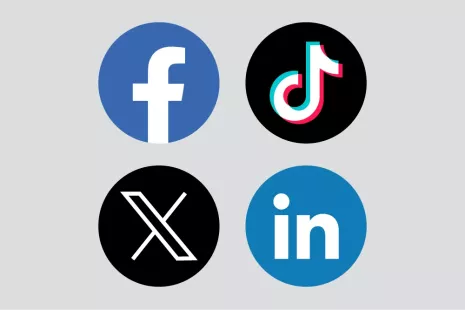You will usually need to email or send a letter with your CV (and sometimes application) introducing yourself to the employer.
A covering email or letter is important as it is your first contact with the employer. Make a good first impression in your covering letter / email, and the employer is more likely to read your CV.
Top Tips
It is important to:
- Keep your covering letter simple and to the point, highlighting key information that will be useful for the employer
- Remember to read over your letter before you send, to check:
- For spelling errors
- That phone numbers are correct
- Email address is professional with no spelling errors
What to include in a covering letter
You should include the following in your covering letter:
Your details
On the letter you should include:
- Full name
- Current address
- Phone number (home and/or mobile)
- Email address
Beginning and closing your letter
If you know the name of the person you are writing to then you should begin with ‘Dear Mr/Ms/Mrs xxxx’. If you address to a specific name, you should end the letter with ‘Yours sincerely.
If you do not know the name of the person you are writing to then you should begin with ‘To whom it may concern’ or ‘Dear Sir/Madam’. If you address with these two options, you should end the letter with ‘Yours faithfully.
Reference the job you are applying for
State the job you are applying for and the job reference number if there is one. It is useful to say where you have seen the job advertised. For example “I am applying for the position of Administrative Assistant as advertised on your website, reference AA102”
Introduce yourself briefly and explain why you are suitable for the position you are applying for
Choose key pieces of information that is relevant to the position you are applying for and will grab the attention of the employer. For example “I am a hard working individual with 3 years experience in working in retail. I can work with others effectively and have excellent communication skills having worked with customers for many years”.
If you do not have much experience or have recently left school or college you should explain your current situation. For example “I have recently completed my GCSEs/A Levels and I am now eager to start my career within retail. I have spent time on work experience and volunteered as part of my Welsh Baccalaureate qualification.”
Tell the employer why you think you are suitable for the position
Briefly explain your key skills making sure they match the skills in the job advert. For example “I am a good team player but can equally work effectively on my own. I would be a valuable and effective part of your team.”
Closing the letter
Finish the letter on a positive and outline briefly key information in your letter. For example “I have attached my CV/application which highlights my achievements and skills which are relevant to this position. I feel that I could become a valuable part of your team and develop my skills further. I look forward to hearing from you soon’.
Remember to sign off the letter with ‘Yours faithfully’ if you do not know the name of the recipient and ‘Yours sincerely’ if you know their name.
Speculative letter
When you email or write to an employer to ask them if they have any vacancies, that is a speculative letter or email. For a speculative letter or email:
- Try to address your letter/email to a named person to send it to — often the Personnel or Human Resources Manager, the company manager or the owner
- State your reason you are writing (see example below)
- Explain why you are interested in working for that employer
- Tell them what skills and experience you have to offer them. These must be relevant to the type of work you are looking for
Make sure you research the company first before writing. This will help you work out what skills they might be looking for. You can then include these in your speculative letter or email.
Example covering letters

This covering letter example is suitable when applying for your first job.

This covering letter example is suitable when you are returning to work after a period away from working.

This covering letter example is suitable if you are changing careers.

This covering letter example is suitable if you are writing to a company to speculatively ask about job opportunities.
Documents
The examples given here are for reference only. You should make sure to make each letter personal to you and the job you are applying for.
You might also like

Search for jobs in Wales.

Learn how to create your CV, find out what to include in your CV, view our free CV templates, and download our guide to CV writing.

Find out how to do a good interview using the STAR technique, get interview advice and preparation tips.

Discover 7 ways to start looking for jobs online.

Find out how to use Facebook, X, TikTok and LinkedIn to find jobs near you.

Apprenticeships are a great way to gain qualifications while you work and earn a wage. Search for apprenticeships near you, find out about apprenticeships and apprenticeship levels, and get tips on how to apply.

